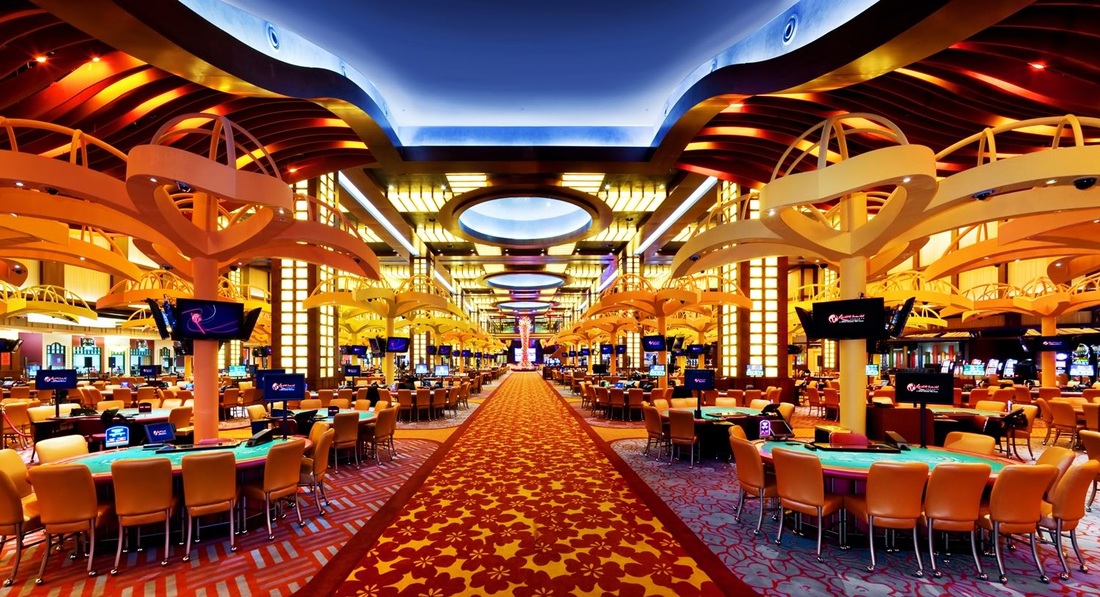
A Societal Influence of Casino Games Across the Globe

Gambling games have long been a fascinating source of amusement, drawing numerous of players from varied cultures around the globe. From the lively casinos of Vegas to the bustling gambling halls of Macau, these games serve as a common thread that unites people across different backgrounds. The allure of luck, skill, and gambling entices not only those hoping to win money but also those seeking a sense of community.
The influence of casino games extends far beyond the gaming floor. They often represent the social norms and beliefs of the societies in which they prosper. Games such as Texas hold 'em, blackjack, and roulette have woven themselves into the mosaic of popular culture, influencing everything from movies to style. As we explore this captivating intersection of luck and life, we can comprehend better how gambling games shape and are affected by the surrounding world.
Chronological Development of Casino Games
The beginnings of gaming activities can be followed back to historical cultures, where betting in different forms was widely practiced. In China, around 2300 BC, a variant of gambling known as Keno was popular, while in old the Roman Empire, soldiers would frequently bet on the consequences of their contests. https://vinbet.click/ The idea of using randomness for entertainment and gain evolved over the centuries, leading to the creation of more structured games. By the final Middle Ages, betting houses started to appear in European nations, notably in the Italian peninsula, which introduced early forms of well-liked activities still practiced today.
As betting increased recognition in European regions, the 17th and 18th centuries saw the rise of gambling establishments as exclusive venues for gambling. The initial official gaming venue, the Ridotto, was set up in the city of Venice in 1638, offering activities like Baccarat games and Faro. This time marked a crucial shifting point, as gaming venues started to attract not just the elite but also the burgeoning middle-tier society. The refinement of games grew, leading to the development of new guidelines and variations that improved the experience of players.
In the 19th century, the industrial revolution and transformations in societal norms further transformed the terrain of casino games. The launch of roulette and contemporary gaming machines pulled in a more diverse crowd, and gaming houses became seen as acceptable recreation. This period witnessed the globalization of gambling, as gambling houses extended from Europe to the Western Hemisphere, culminating in the development of the famous Las Vegas Strip in the 20th century. The evolution of gaming activities has persisted into the modern era, integrating new technologies and online services, rendering them available to a worldwide audience.
## Cultural Relevance in Diverse Cultures
Casino activities have profound cultural and social significance across a multitude of societies across the world. In Las Vegas, the very core of the city is woven around gambling establishments, where gaming is not just a recreational activity but a central aspect of social engagement and community interaction. The vivid lights and dynamic atmosphere attract millions, showcasing how gambling activities can influence local financial landscapes and cultural identities. This environment transforms the notion of leisure into an engaging encounter that influences fashion, music, and even cinema.
Conversely, some societies approach gambling with an air of caution, considering it through the lens of ethical considerations and heritage. For instance, in many Eastern cultures, games like Mahjongg and Pai Gow are steeped in history and possess significant social relevance. vinbet These games are often played during get-togethers and festivities, fostering collective connections and reinforcing family ties. The act of engaging in these games goes above mere amusement, reflecting values such as respect for elders and the importance of communal fun.
Simultaneously, in Western countries such as Monte Carlo and Italy, gambling activities serve as symbols of luxury and elegance. The stylish atmosphere of these establishments attracts both travelers and residents, reinforcing a sense of prestige and elitism. The art of the game of poker and the strategic elements of games like banker’s game are appreciated, influencing community relationships and cultivating an appeal that enthralls a heterogeneous audience. This highlights how casino games can both echo and influence cultural perspectives towards hazard, benefit, and community interaction.
Economic Impact and Tourism
Gambling activities play a crucial role in the economic landscape of many regions, particularly those that rely heavily on visitor traffic. The revenue produced from gambling establishments fuels local financial systems, creating jobs not only within the casinos but also but also in related sectors such as hospitality, dining, and recreation. This surge of tourists, drawn by the attraction of games and the overall gaming environment, stimulates spending across multiple businesses, contributing to the economic vitality of the area.
The presence of casinos often leads to the development of infrastructure, including lodging, public transit, and recreational facilities. These improvements are essential in enhancing the overall tourist experience, making destinations more attractive to visitors. Additionally, many casinos contribute in local communities through support of events and philanthropic initiatives, further integrating themselves into the community structure of the region. Such contribution not only supports economic growth but also cultivates a positive reputation of the casino industry.
Furthermore, the global popularity of casino games drives competitive tourism, with locations vying to attract players from around the world. Iconic destinations like Las Vegas and Macau have become synonymous with gambling culture, drawing millions each year. This competitive edge encourages creativity and variety within the gaming industry, influencing developments in leisure and hospitality that resonate beyond their borders. The ripple effects of this tourism extend far, impacting local economies and cultural exchanges on a global scale.